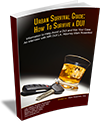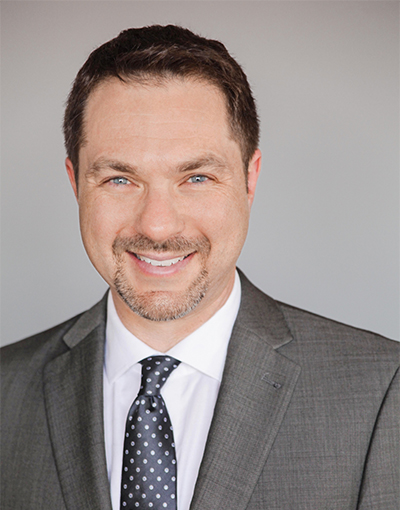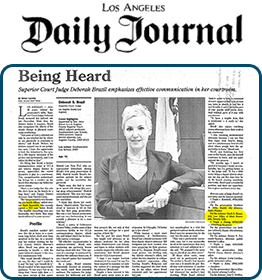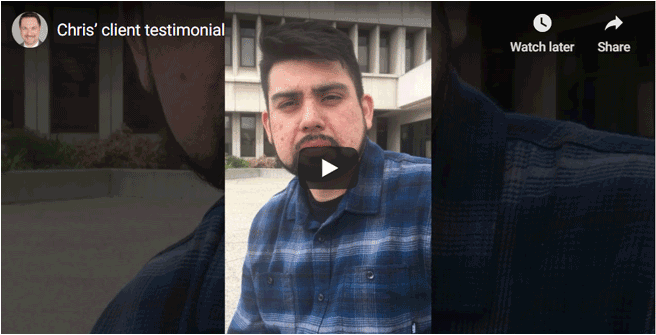What Are DUI Checkpoints and Roadblocks?
A DUI roadblock or a checkpoint is a situation in which a police department has set up a stop in the middle of a road to check and see if people are driving under the influence. The general premise is that a roadblock or a checkpoint is illegal or improper, except under very limited circumstances, and they must pass constitutional muster. Checkpoints are generally set up as a deterrent for DUIs and for education because police want to stop people from drinking and driving while impaired and in order to be legal, certain factors must be met, as set out in Ingersoll, a Supreme Court case that states checkpoints may be set up so long as certain safety and legal protocols are met.
Ingersoll said that the location of the checkpoint, the number of officers, the signs, the cone patterns and the location where officers performed the screening and investigation would all have to be appropriate. In addition, a notice had to be given and no one could be unreasonably delayed by the process. The checkpoint cannot be for general crime control; it can only be used to specifically deter DUIs and look for DUI drivers.
There are many factors to consider, which is why this particular area is ripe for motions to suppress, or for arguments that the officers did not have a reason to stop, detain and arrest that person. We have to be very careful about where these checkpoints were, how they were set up and who was running them and we also have to keep in mind how these things are funded because it’s always important to be able to explain the bigger picture to the judge and to remind them that checkpoints are revenue sources for local police departments.
DUI checkpoints are allowed and legal in California, as long as they comply with Ingersoll and the cases that came after it, which would define what is and is not allowed. They are often deemed legal in California, although I think they should not be because they are roadblocks and they’re not very effective in reaching their stated goal.
What Are a Person’s Constitutional Rights When Stopped At A DUI Checkpoint?
Someone’s constitutional rights don’t disappear at a DUI checkpoint, although people do subject themselves to occasional scrutiny. They don’t have to comply with any field sobriety tests, breath test, blood test or anything like that without the officers having a reasonable suspicion to detain them and having probable cause to make an arrest. Someone who was lawfully arrested must submit to a chemical test, but they still don’t have to answer questions or provide any information from police; the checkpoint is just something for the officers to use and people only have to obey the rules of the road.
If they set up a cone pattern or funnel traffic a certain way, people have to drive safely within the columns and they have to stop if the officer gave them a lawful order to do so, but they don’t have to comply when it comes to talking to them or giving them extra information.
What Happens If Someone Avoids a Checkpoint?
There should be an escape route; if someone comes across a check point, there should be a way for them to turn around and avoid it, although everyone must be careful to not violate any vehicle codes to avoid a checkpoint. They can choose to avoid the checkpoint, go around or turn and go a different way, as long as they don’t break any laws, although police often set up a chase to try to catch people who break the law trying to avoid the checkpoints, whether it’s an illegal turn, or crossing a solid line, so the police may still pull them over for a vehicle code violation instead of just going through the checkpoint. People have to be very careful about this.
Can People Refuse to Answer Questions at a Checkpoint?
Someone stopped at a checkpoint does not have to subject themselves to an interrogation; they should give the police their driver’s license if they ask for it, but they don’t have to answer questions regarding anything such as where they were coming from, where they were going or how much they had to drink. The stop should be short, just long enough to determine if the person may have been drinking; the police don’t have to ask questions to figure that out.
Is a DUI Stemming from a Checkpoint Arrest Different Somehow?
The case will proceed more or less the same as a regular DUI if someone was stopped at a DUI checkpoint and arrested for DUI. The police reports may be cut and pasted because they may have templates written up so they can just fill in the blanks on a preprinted form. The checkpoint case will be different in court because more or less every DUI checkpoint or roadblock case has to go through a suppression hearing to test the constitutionality of the checkpoint; it has to be shown that the stop was not based on anything specific to that car. The checkpoint has to have been set up to comply with all Ingersoll factors.
What Is the Biggest Mistake People Make When Going through DUI Checkpoints?
One of the biggest mistakes people make is to go through a DUI checkpoint in the first place; either they don’t notice it soon enough or there may have been improper signage, but going through the checkpoint at all is a mistake; people should be able to notice these checkpoints, change their course and go in a different direction to avoid them altogether. Another mistake people make is being too talkative or chatty; they don’t just open their window and show their ID. Instead, they spend too much time talking with the police officer, giving them more time to form reasonable suspicion that they were driving under the influence, did not have appropriate registration on the car or there were equipment violations. Police may see something completely unrelated to DUI when someone goes through a checkpoint, so they might flag them over to a secondary screening area, which gives police more time to find out if they had been drinking.
What Are the Biggest Misconceptions People Have about Checkpoints and Roadblocks?
The biggest misconception people have about roadblocks or checkpoints is that they are always legal and that there is some benefit to them, whereas the truth is, they are a major intrusion into people’s lives. Police are poor at figuring out who is or is not impaired just based on the checkpoint. People think the resources used and the money spent on checkpoints is used wisely, but other forms of law enforcement are far more effective. The truth is they actually stop and delay completely innocent people, asking for their papers and asking where they are coming from and where they are going.
A lot of discretion and power is being given to relatively inexperienced officers to stop, detain and interrogate innocent law abiding citizens, which is actually dangerously close to a German roadblock asking for someone’s papers.
For more information on DUI Checkpoints and Roadblocks, a free initial consultation is your next best step. Get the information and legal answers you’re seeking by calling (310) 424-3145 today.






 Personal Attention
Personal Attention








